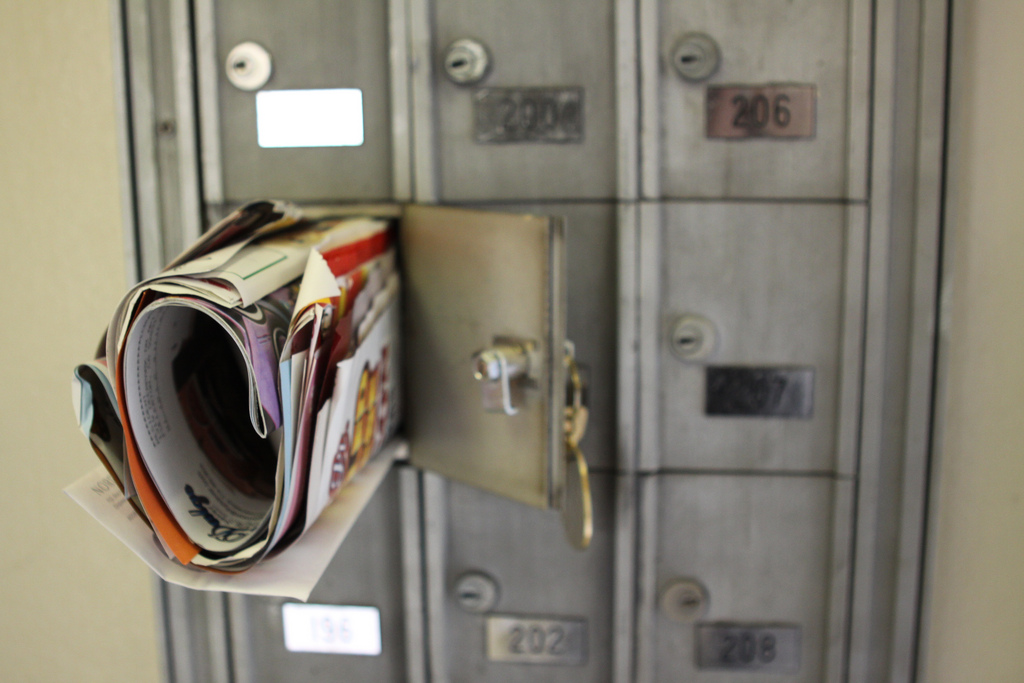
Source: Young Thousands via Flickr Creative Commons
You’d think that once you win the NYC housing lottery, you’d be able to live happily ever after, in rent-stabilized bliss. And for the most part, that’s true. But there is still some annual financial housekeeping required to maintain your residence. Once you’re in a lottery apartment, in order to renew the lease, you’ll likely have to go through an annual income recertification process.
What Is the Annual Income Recertification Process?
The annual income recertification process for affordable housing lottery units is intended to make sure tenants stay in compliance with the income guidelines set by the building’s developer, funding partner or management company.
Income recertification is not required for all lottery buildings. But if your building is financed by a federal program (i.e., Low-Income Housing Tax Credit (LITHC) or HOME Investment Partnerships), chances are you will have to go through the process. If that is the case, each year, your building’s management company or the organization that financed your building will ask you to submit pay stubs, bank statements and other financial documents for review. Through this recertification process, you are also able to confirm or update the number of people in your household.
Can I Lose My Apartment if My Income Rises?
The short answer is no. According to the Department of Housing Preservation and Development, an increase in income will not result in the loss of a rent-regulated lease. If a tenant’s household income exceeds the applicable maximum, which is currently $200,000 per year for two consecutive calendar years, the “next available unit rule” would come into play.
This rule states that if the tenant’s income exceeds the set limit, then the next available comparable unit must be rented to an income-qualified tenant. This means that the tenant does not have to give up their apartment because they make more money. Instead, the building needs to free up a comparable unit for a new, income-qualified tenant. This is the primary reason annual income certification is required in the first place. As long as the building owner or management company complies with the next-available-unit rule, the apartment currently home to the (over-income) tenant will continue to be subject to rent stabilization. That said, it is important to take this information with a grain of salt, since a tenant’s income level may be assessed on a case-by-case basis.
Can I Get Kicked Out for Other Reasons?
Most lottery apartments are subject to rent stabilization guidelines, which guarantee tenants an offer of a lease renewal. But while it is difficult, you can get evicted. Failure to pay rent on time and not using the apartment as your primary residence are a few reasons that landlords can send you packing. When in doubt, consult your lease agreement.
What Happens If My Household Size Changes?
Landlords should be notified of any changes of your household size. Property owners also will request this information as part of the annual income certification process. Tenants should take notice of the restrictions noted in their lease regarding who may reside there. Generally, landlords realize that a tenant’s household size may change over time, after events such as the birth of a child or a marriage.
What If My Family Grows and I Need a Bigger Place?
While you can express to your landlord that you would like to get a larger apartment (or downsize), there is no guarantee that your request will be granted. Current tenants are not given preferences for new units over prospective tenants who are income-qualified.
Source: Hi Lo via Flickr Creative Commons
Tips on the Recertification Process
After winning the affordable housing lottery last year, I wasn’t sure how the recertification process worked. For months, I lived in fear that I’d get kicked out if for whatever reason my income was no longer deemed to qualify. Thankfully, that didn’t happen. Here are some tips on how to manage the recertification process smoothly.
- Have all of your financial documents in one place or readily accessible online. My recertification process came up in the middle of December, which was difficult because many public agencies were operating on holiday schedules and I was traveling. Luckily, I had all my financial information readily available in an online folder, and just had to print everything out and sign the updated paperwork. I recommend having a copy of your most recent tax return, bank statements, pay stubs, and additional assets (like stock information) handy. A bonus would be having both hard and soft copies readily available.
- Know where your local notary is and what their hours are. The biggest challenge for me was finding a place to get my recertification documents notarized and mailed out on New Year’s Eve. To avoid a last-minute scramble, know where your local notary is. Bank branches often have a notary, as do printing and shipping shops. If using a bank where you are a member, in most cases you will not have to pay a notary fee. However, if you are not a member or use a shipping center you will need to pay a small fee. I used a postal outlet for my notary service and was charged $4.
- Be on the lookout for communication from your building’s management team or landlord. Correspondence about your income certification requirements and deadlines will most likely be sent to you via snail mail, so remember to check it regularly about a month or two before your lease renewal date. While every building has their own deadline schedule, this process typically happens around lease renewal time.
—
Hey, why not like StreetEasy on Facebook and follow @streeteasy on Instagram?